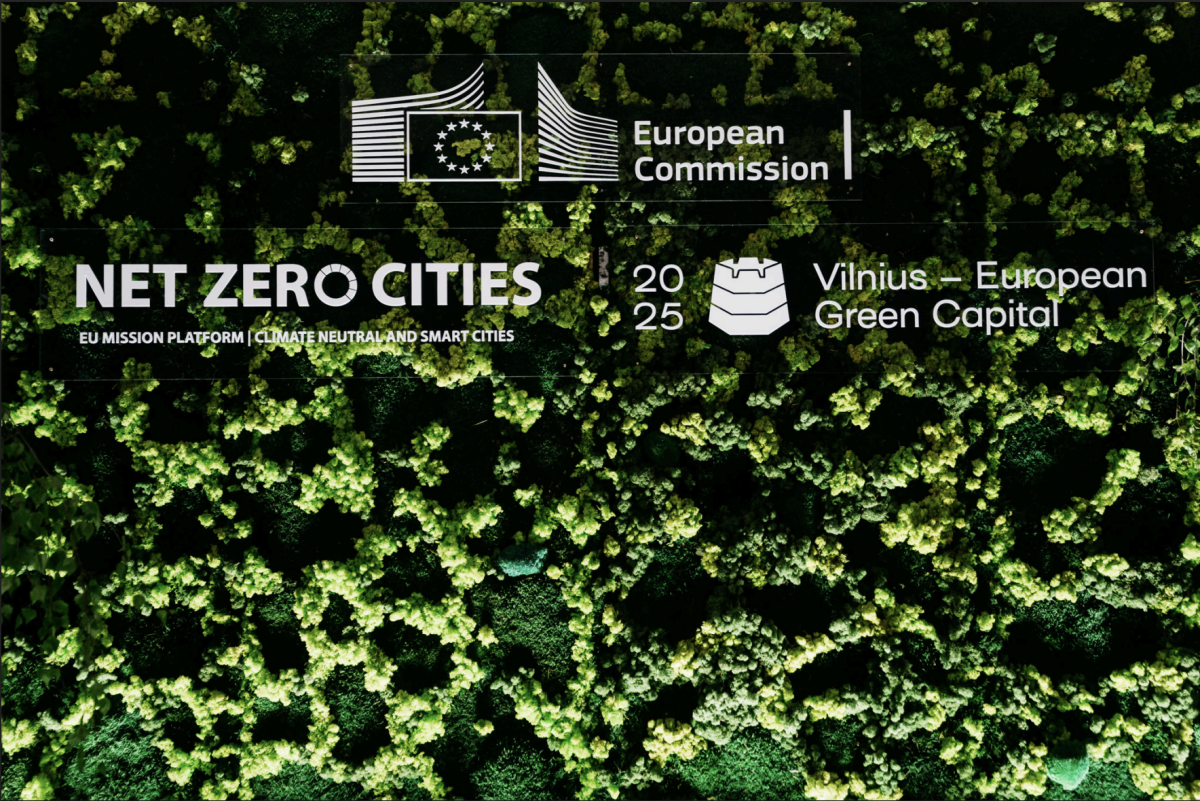On the 6th of May, the Urban ReLeaf team took centre stage at the Cities Mission Conference in Vilnius, Lithuania with an engaging session showcasing how citizen science and digital tools are driving urban climate resilience.
Titled ‘Strengthening Climate Resilience Through Citizen-Powered Data,’ the presentation, led by Todd Harwell (IIASA) and Marcelo Lampkowski (ICLEI), outlined the project’s innovative approach to merging community engagement with cutting-edge technology for greener, more liveable cities.
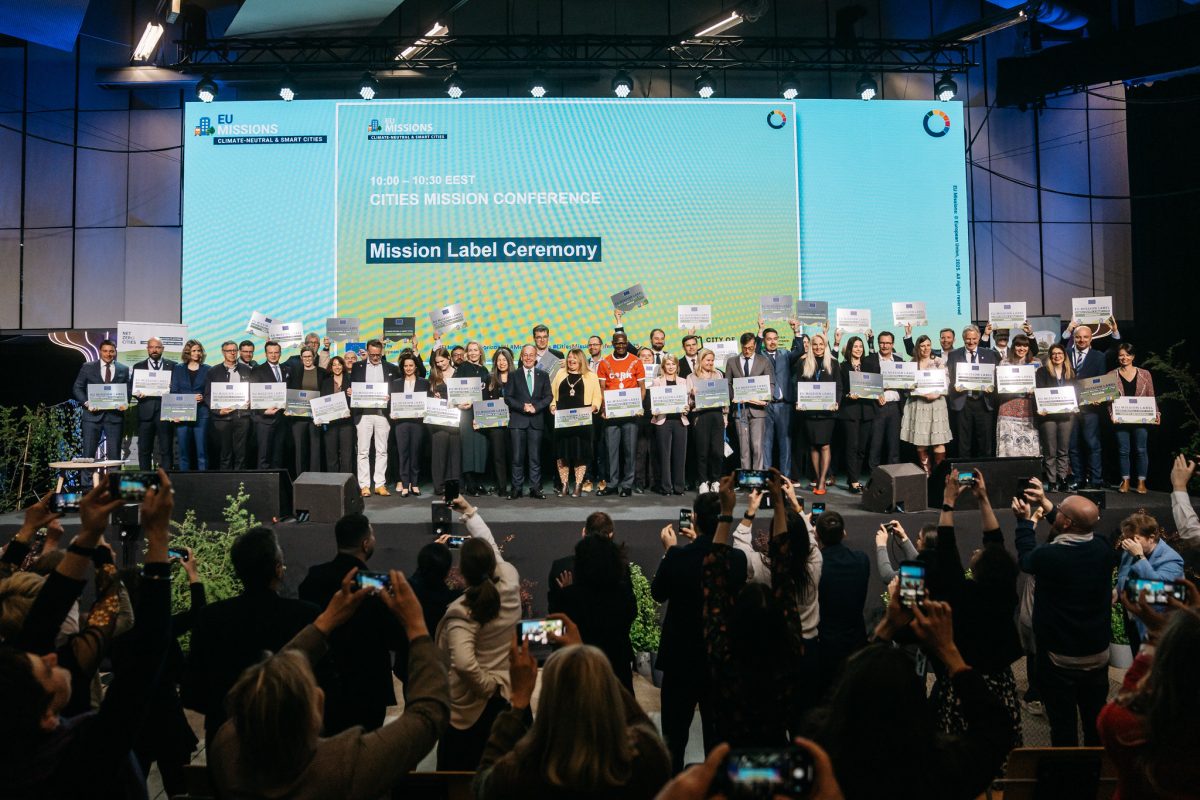
The session began with Athanasia Tsertou (CIBOS Innovation), who laid the technical groundwork by introducing Urban ReLeaf’s digital tools, such as the Participatory Tree Registry app and wearable environmental sensors.
Tsertou explained how these technologies help cities collect hyperlocal environmental data while actively involving the public. Her presentation highlighted key features, including the app’s dual “Citizen” and “Expert” modes, gamification elements to enhance engagement, and the crucial role of user-friendly design in encouraging broad adoption.
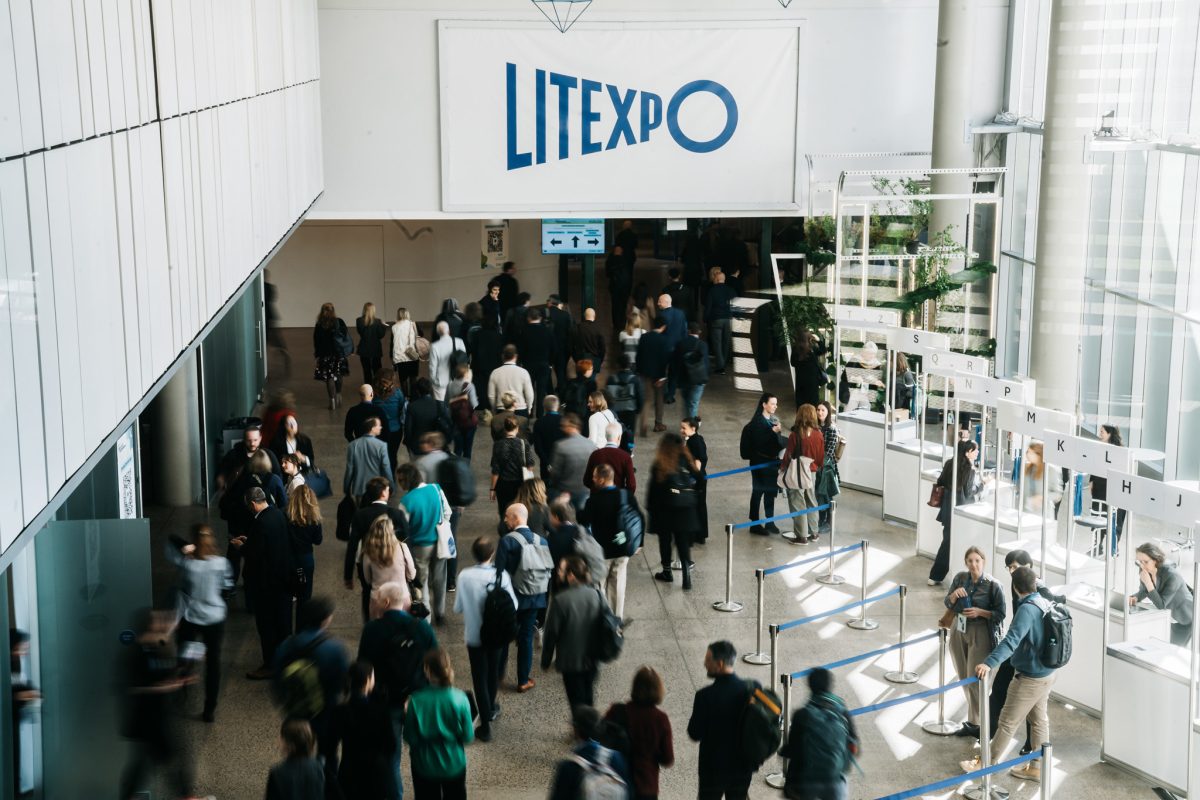
Following this, city representatives shared their direct experiences with implementing the innovative solutions featured in the project. Eileen Roth (Mannheim) detailed how their Tree Registry App has filled critical data gaps in municipal records whilst raising awareness about urban greenery.
Albin Hunia (Utrecht) discussed the integration of wearable sensors and the EcoPulse app to monitor heat stress, particularly in vulnerable neighbourhoods, emphasising the role of co-creation in policy design. From Riga, Nora Gagane showcased how citizen science campaigns have mapped heat islands and shaped the city’s Urban Greening Plan, proving that grassroots data can drive large-scale climate action.
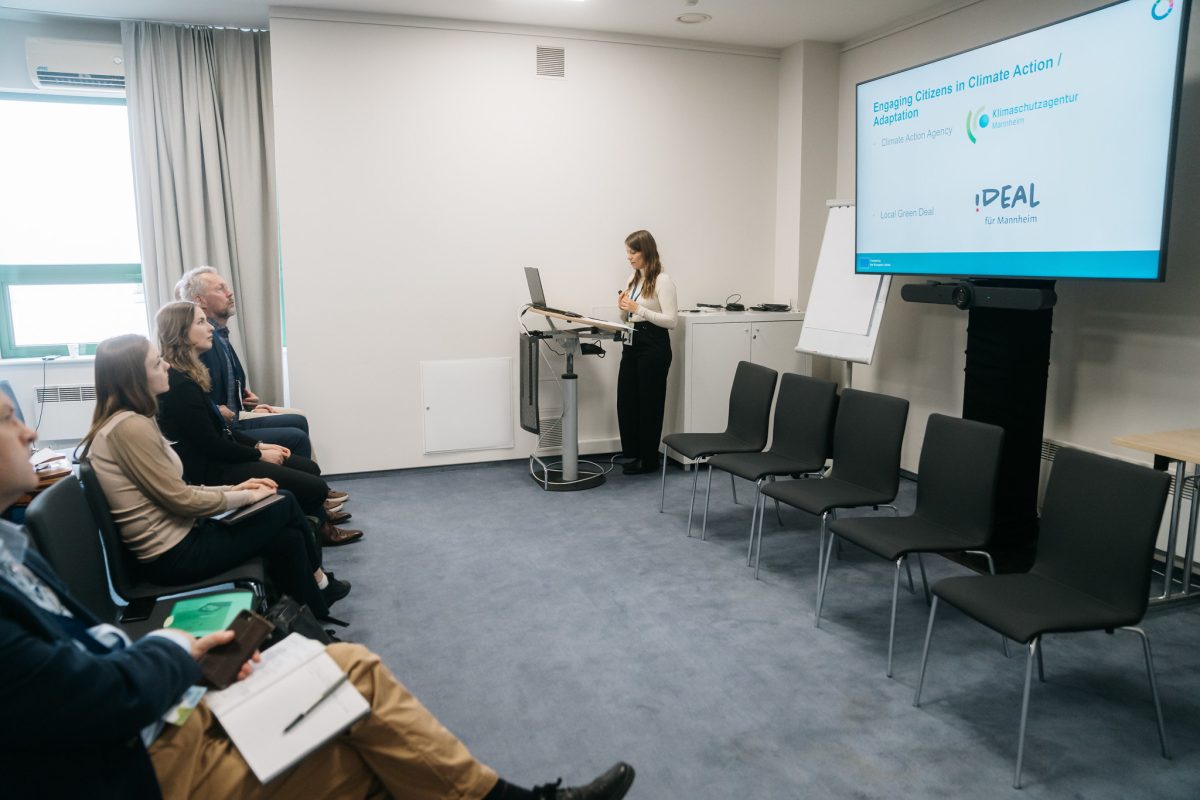
An engaging discussion followed, delving into both the challenges and successes of implementing Urban ReLeaf’s technologies, from ensuring data accuracy to sustaining long-term citizen involvement.
The conversation provided valuable insights into their practical applications and scalability. Attendees were particularly intrigued by the potential of Urban ReLeaf’s Accelerator Programme, set to launch soon, which will help more cities adopt these participatory approaches.
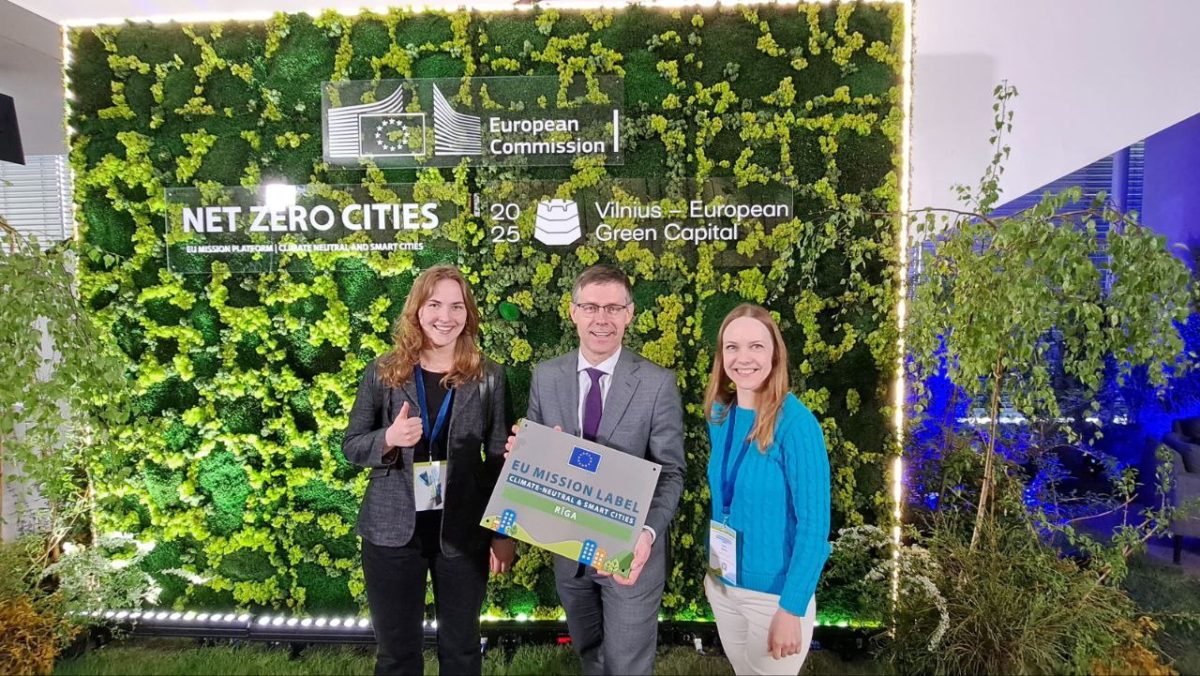
The session reinforced Urban ReLeaf’s core message: that empowering citizens with technology not only improves urban resilience but also strengthens trust between communities and policymakers.
The enthusiasm from city representatives was evident, with many eager to replicate these models in their own municipalities. The session concluded on a high note, with participants celebrating the transformative potential of community-driven climate action.
Image credit: © NetZeroCities
